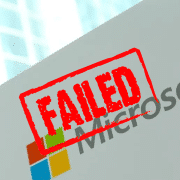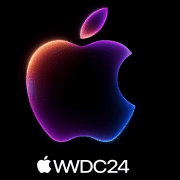AI Product Developer
Blockchain technology has increased in popularity in recent years, thanks to the rise of cryptocurrencies. Many centralized institutions such as governments and banks have been interested in blockchain technology for its potential to process data securely and effectively. Although blockchain technology is directly related to the financial system, this technology goes far beyond the economic spheres and can be applied to blockchain in logistics and various sectors. Its precedent is the DLT (Distributed Ledger Technology) systems that already involve decentralized data management systems.
What Is Blockchain?
A blockchain is a secure, censorship-resistant, and immutable information recording system. It is an accounting ledger duplicated and distributed over a network of computers. As its name indicates, the blockchain works with blocks of information with limited storage.
When new information is added to the system, it is recorded in the accounting book of all network participants. A blockchain is a type of technology known as DLT (Distributed Ledger Technology), in which an encrypted digital signature called a «hash» records transactions.

How are Blockchain Technology and Cryptocurrencies Related?
Blockchains record information similarly to how traditional accounting books do. For this reason, the world became aware of blockchain technology with the invention of Bitcoin in 2009. There have been attempts to create a digital currency for several decades, but these have failed due to security, technology, and mass adoption issues.
Thanks to blockchain technology, Bitcoin emerged as the first cryptocurrency immune to counterfeiting since it did not require a central authority but rather complex cryptographic algorithms. It was the first use case of blockchains, and it succeeded thanks to the economic incentives granted by the protocol.
As the years passed, several developers looked at blockchains as a technology that could innovate financial markets and many other aspects outside of them.

Blockchain and DLT Systems
Blockchains are essentially a type of DLT (Distributed Ledger Technology). It means that other distributed systems are not blockchains but have similar characteristics and have applications outside the financial field.
DLT systems allow storing information in a distributed, safe, and precise way through cryptography. They are a larger category of blockchain; all blockchains are DLTs, but not all DLTs are blockchains since there may be various types of DLTs that differ from blockchains.
For example, types of DLT differ according to their construction structure and cryptographic signatures. In other words, blockchains group their data on-chain using a cryptographic hash. Still, there is another type of DLT that groups data in a different way and requires different cryptography.
-
Synthetic Data and AI are reshaping social connectivity
In a data-driven world, the evolution of artificial intelligence is dramatically reshaping our social interactions. Central to this transformation is synthetic data, a technological marvel that programmatically simulates real-world information. Let’s explore how synthetic data and AI strengthen social networks, offering privacy, economic efficiencies, and personalized experiences. The Emergence of Synthetic Data Synthetic data has…
-
Synthetic Data For AI and LLMs: A $2.34 Billion Breakthrough And It’s Just Getting Started
Explore how synthetic data is set to transform AI, projected to grow to a $2.34 billion industry by 2030. Learn about the benefits of synthetic data in AI training, including enhanced privacy and scalability. Discover how leaders like Mark Zuckerberg are leveraging synthetic data and feedback loops to innovate AI development ethically and efficiently.
-
What Are AI Agents And Why Do They Matter?
In today’s fast-paced tech environment, AI agents are revolutionizing how we interact with technology. These advanced systems do more than perform tasks—they anticipate our needs, making daily life smoother and more intuitive. This new wave of technology promises to transform routine challenges into seamless experiences.
-
Deadpool & Wolverine: 10 cosas que debes saber antes de ver la película
Deadpool & Wolverine se ha estrenado en medio de una crisis en el cine de superheroes, aunque con una ventaja a su favor: no se toma demasiado en serio. Hoy, te revelamos 10 cosas que debes saber antes de aventurarte a ver Deadpool & Wolverine, el estreno recién salido del horno hollywondense. Deadpool & Wolverine es uno de los lanzamientos de…
-
Los 10 mejores finales de series de TV y streaming
Los 10 mejores finales de las series son un tema que puede polarizar opiniones. Dicen que las series son el nuevo cine. Lo que es un hecho, es que la era dorada de las series no termina y nos ha dejado para la posteridad auténticas obras de arte y grandes finales. Hoy, te presentamos el…
-
Cobra Kai sexta temporada: Lo bueno y lo malo
Cobra Kai llega a su final en su temporada seis y este jueves 18 de julio se estrenaron los primeros cinco capítulos (constará de 15 episodios, divididos en tres partes) que dan cierre definitivo a una de las series que lograron brillar con personalidad propia tan surgir como propuestas que explotaban la nostalgia. Hoy, en…
Applications outside Financial Systems
Blockchains have the potential to store, order, and distribute any information in a safe, fast, and efficient way. With these features, this technology is beneficial outside financial systems. Here are some areas in which blockchain applications can be used:
Supply Chain and Logistics
One of the sectors where blockchain technology could be very beneficial is the supply chain and logistics sector. In this sector, millions of data are handled daily, and its verification is of the utmost importance for the system to work correctly. There are various intermediaries in supply chains, so blockchains or DLT can create systems that optimize these logistics processes.
Health Sector
Another sector where DLTs can be of great help is the health system. One of the challenges of several medical institutions is the storage of information in a safe and accessible way. A DLT can handle medical data and make it easier for a doctor to amend medical records.

On the other hand, doctors worldwide could access patients’ clinical histories to treat them safely. Through DLTs, access to specific parts of this information could be made available for use by family members or medical personnel.
Handling of personal data
One of the main benefits of blockchain technology is security. Blockchain technology is very suitable for digital identity. All our data, such as passports, medical records, insurance, driver’s licenses, and other documents, could be stored on the blockchain. In this way, this technology would facilitate the handling of these documents while traveling because everything would be immediately available.
Smart Contracts in the Legal Field and NFTs
Despite being tied to cryptocurrencies, smart contracts are an application of blockchain in many other fields. These codes execute when users interact with them. Smart contracts are used in the legal area since they allow different companies to certify transactions or exchange data securely.
NFTs are also smart contracts that have the potential to change the industries of art, music, intellectual property and patents, collectibles, video games, sports, fashion, ticketing systems, internet domains, and, of course, produce the metaverse.
The Future of DLT, Blockchain & Cryptocurrencies
The practical applications of blockchain technology go beyond financial systems. In short, any digital information that can be tracked and exchanged can be processed efficiently and securely with blockchain technology.

For example, blockchain can process the information on raw materials, identity documents, credentials, and digital rights. One of the challenges that blockchain technology faces is storing and recording information accurately and securely since once this information is saved, it can never be modified.
Cryptocurrencies were the first use cases of blockchain technology, changing the world completely. However, blockchain technology is not limited only to financial services. We will see this in the future in various industries that will use this technology to improve their processes by innovating worldwide.




















